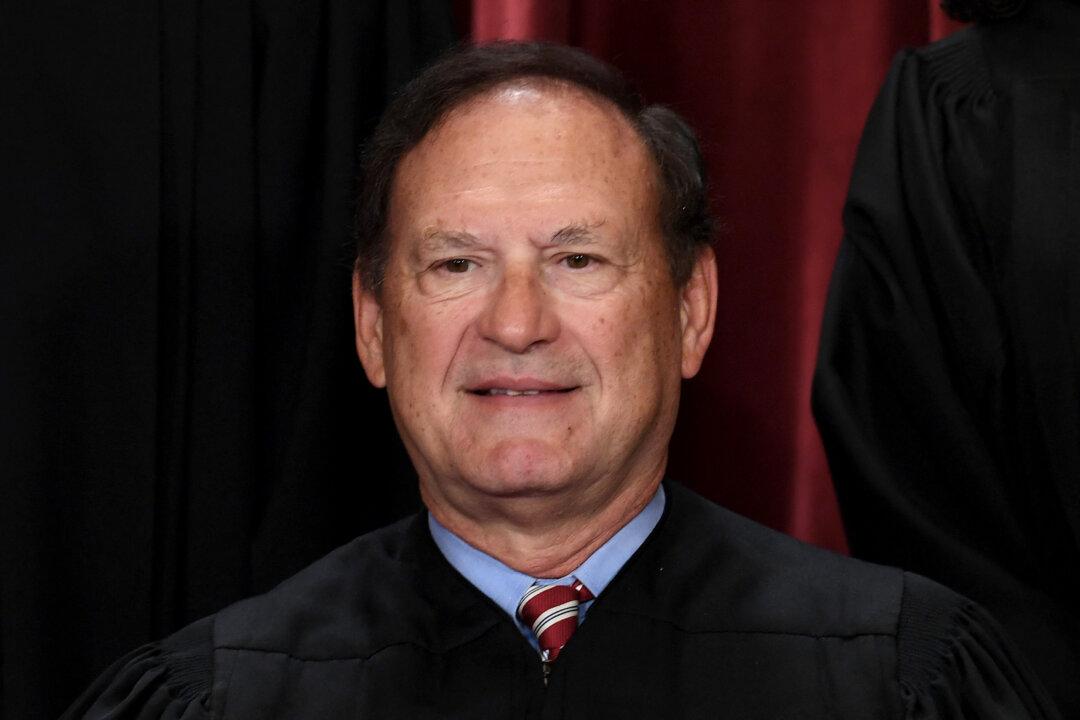Supreme Court Justice Samuel Alito rejected Democrat calls for his recusal from a case after giving interviews with a lawyer involved in the suit.
In an Aug. 3 letter (pdf) to Supreme Court Chief Justice John G. Roberts, Senate Judiciary Chairman Dick Durbin (D-Ill.), along with others, asked him to take “appropriate steps to ensure” that Justice Alito will recuse from the Moore v. United States case. It was because Justice Alito had given interviews to David Rivikin—an attorney representing plaintiffs in the lawsuit and also a contributor at The Wall Street Journal.





